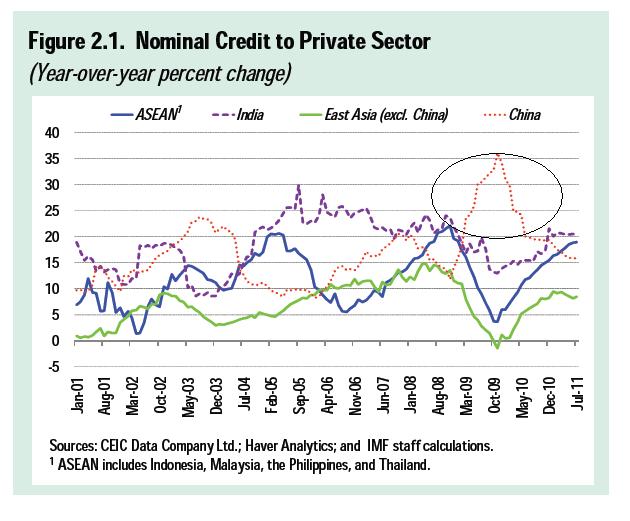Late last year I highlighted a 5 part video series on Hugh Hendry in one of his steadily declining public appearances. In it he used a key term to describe his trading aspirations; the 'Plasticine Trader'
Here's a few excerpts from that series, completely lifted from a new blog called
Chasing the vig. I guess I have a new book to put on my reading queue and a new blog to follow.
I have clipped the blog post down quite a bit so I suggest you click on over and read the entire entry. I have also highlighted and bolded some sections I found interesting
Steve Drobny's book The Invisible Hands includes one of the best interviews of a fund manager/trader. Ever. The chapter is called The Plasticine Macro Trader and it is none other than Hugh Hendry, manager of the hedge fund Eclectica Asset Management. This is how we should be thinking and trading. Also, he's highly entertaining. Read the entire thing, but here's some snippets:
Today’s long-only stars operated during a period of time where investors did not require a macro compass. Today your average long-only guy does not spend much time looking at interest rates, currencies, debt levels, and other key macro variables. I have even been to conferences where fund managers have boasted, “I don’t know where oil prices are going; I don’t know where interest rates are going; I don’t know anything about the government.” . . . For the last 30 years they could get away with that nonsense, but now at a historic turning point they are being found out.
Again, remember, I believe there is a degree of predictability to what has been happening in markets for the last 10 years. I believe that our generation is embarking upon a long period of unwinding financial excesses. Stock market returns could be terrible for the foreseeable future. If you believe people like Niall Ferguson, debt deflation eliminates all of the gains from the preceding boom, it purges everything. By 1974, we had eliminated all of the real gains from the American stock market since 1906. If we consider Japan as an example, the Topix would have to trade at 300 (or one third its present level) to be comparable with the lows reached during the 1970s on Wall Street. At this point, all of the real gains since the index was reconfigured in 1969 would have been eliminated. . . .
Have the courage to be different, the courage to risk the ire of others for the sake of being right; to fight rather than embrace compromises everywhere. We have to encourage rebellious notions such as playfulness and curiosity. There is no one correct way of doing things that is set in stone. Periodically managers should be open to trying different approaches.
George Soros explains a version of this phenomenon when he says, “Invest first, and investigate later.” But this is heresy in the institutional money world. When I suggest stuff like that, the number crunchers and the box tickers write down, “crazy guy” and make their polite goodbyes. But every so often a heretic turns out to be a genius.
. . .
Even a true contrarian is only really contrarian about 20 percent of the time; it’s all about choosing the right moment to fight convention. The rest of the time is spent trend following. So I guess I am a trend-following contrarian. I come back to describing myself as a disciplined deviant. But every description that I have for myself is an oxymoron, and when I present my views, most people just think I’m a moron.
I have Tourette’s syndrome—I say “fuck” at all at the wrong times. One of my mentors taught me how to articulate that Tourette’s and then play the odds, become trend following and recognize when the elasticity becomes so extreme that your Tourette’s becomes valid and has the possibility of profits.
I jokingly claim that my best investment decisions come from being a paranoid schizophrenic. I hear voices in my head. Subconsciously and explicitly I seek to create a macro prejudice. And so there’s an ongoing debate by those voices in my head. But the scary thing is that I make investment decisions based on these voices. And so does everyone else. I just talk about it openly and honestly. When I make such decisions I become very fearful, paranoid like a schizophrenic, that these decisions may jeopardize my investors and my portfolio. I would contend that this fear makes me a better investor.
. . .
That’s the hook; it is one thing to create the intellectual color but it doesn’t go into the portfolio until it starts to gain the attraction of relative momentum. I need the legitimacy of other curious strangers before I get involved.
Last summer I was on CNBC talking up Potash [Corporation of Saskatchewan], saying it was the best positioned company in the world when I suddenly realized everyone was agreeing with me. So I got out. Thank God I can reject my own advice because from July to October of 2008 its performance was diabolical.
The thing that I’m most fearful of is a focused fund, or a portfolio of 20 best ideas, which is a concept that marketed well a few years ago. The reason this idea can prove disastrous is that “best” is an emotionally charged word. Giving up on your best idea is the same as admitting that you’re wrong, something crucially important but very difficult to do.
I don’t believe that there is any real diversification left in the world today, at least not the kind of diversification to which you refer. And the shocking nature of the results in 2008 demonstrates this fact. We live in a world of binary events. Over the last 10 years, markets have oscillated between inflation and deflation, and people are either all in or all out. What we’re trying to do is make sure that we’re leaning at the right time, correctly anticipating the oscillation.
. . .
The same “upside down” logic prevailed in 1979 when Volcker became chairman of the Fed. You had this new sheriff in town who was honest and tough. He was going to raise interest rates to make the economy very weak in order to parch the system of its inflation. He was a dream come true for a bond bull, and yet bonds got destroyed whilst gold doubled to $800 in three months. (See Figure 13.8.) The problem was that Volcker had to come clean on the Fed’s dirty little secret. In order to have the legitimacy to be so hawkish, he had to admit that the problem was inflation; investors panicked and scrambled to protect themselves with gold. A hawk produced a melt-up in gold. Could the dovish Bernanke produce a similar melt-up at the long end of the bond market?
. . .
We are spending all of our time looking for inflation because the Fed will be slow in raising interest rates while the roof is caving in. The private sector’s desire to unburden itself of debt is so great that debt deflation seems much more likely. And if it rolls over with everyone loaded up on risk again, playing commodities and inflation expectations, bonds could go parabolic. The bull market in government bonds is one of the greatest bull markets of all time, and bull markets of that magnitude do not end with a whimper.
Typically my work is all about creating context to establish an environment where I might want to take risk. The challenge with risk management is finding the appropriate moment to expose yourself to that risk. I don’t think the right moment has come to pass for Japan just yet, but this is an idea that I have fermented for five years. Back then, I said that for the trade to work, we would need an extraneous economic shock which pushes dollar/yen down to around the 80s, and we have essentially been there. I am always in danger of wanting too much, but I am looking for those levels again in any subsequent round of global risk aversion. If that happens, I fear the Japanese will debauch their currency in an attempt to generate inflation to monetize their considerable public sector debts. With the majority of the private sector still invested in post office savings, such a step would cause a panic to buy equities and the Nikkei could go back to 40,000. Typically it requires 25 years to break a previous nominal price high in an asset class that has suffered a bubble. So who knows, maybe this is the trade for next decade? They have covered the place with kerosene, now all they have to do is light the match.
I live an interesting life. I made 50 percent in October 2008 and my biggest investor fired me. He said he had a manager that was down 30 percent on the year, but that manager “gets it,” so he was going to stay invested with him. Meanwhile, I made 30 percent on the year and I get fired because I don’t get it? This is the curse of my life. I seem to collect all sorts of witty dinner party anecdotes from my experiences, but I pray for a less interesting life.
Markets are irrational but they are right at every moment. They are right until they are wrong. You have to marry the notion of being right or wrong with being right with the timing of a given proposition. This is not a business that indulges intellectual prejudice.


























